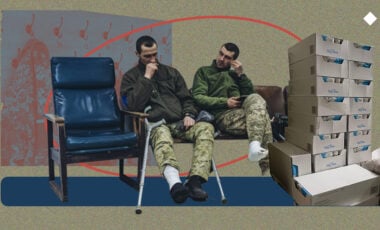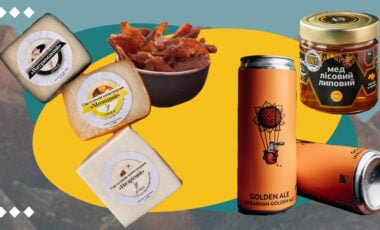Putin signals no intention to engage in peace talks soon — ISW

Photo: screenshot of the video
Kremlin leader Vladimir Putin stated in a January 24 interview on Russian state television that the Russian Federation is unlikely to engage in peace talks in the near future.
This was reported by Rubryka, citing the Institute for the Study of War (ISW).
During the interview with Kremlin propagandist Pavel Zarubin, Putin emphasized that the war against Ukraine would continue, signaling to Russian society that peace negotiations are not forthcoming.
Putin framed Russia's aggression against Ukraine as part of a larger confrontation between Russia and the West.
"Putin is likely using his interview with Zarubin on Russian state television to signal to Russian society that Russia is unlikely to participate in peace negotiations in the near future and that the war is unlikely to end soon," the ISW report stated.
ISW experts also believe that Putin aimed to influence Russian elites who are eager to end the war, sending a clear message that no quick resolutions to peace are on the horizon.
This statement further underscores Putin's steadfast stance, which perpetuates the narrative that Ukraine is merely a puppet of the West and that the conflict is part of a broader global confrontation between major powers.
Additionally, analysts highlight that Putin views negotiations over the war in Ukraine as a matter to be resolved solely between the United States and Russia, excluding Ukraine from direct participation.
The Russian president also took the opportunity to again question Volodymyr Zelensky's legitimacy as Ukraine's leader.
During the interview, Putin sought to elevate his status by drawing parallels between himself and Donald Trump, emphasizing his enduring belief that Russia is a great power and the rightful heir to the Soviet Union.

White House seeks lasting resolution to prevent Russia's war against Ukraine from reigniting in 2-4 years – new US Secretary of State
Key takeaways
- Russian President Vladimir Putin is once again attempting to obfuscate his unwillingness to participate in good-faith negotiations to end the war by blaming Ukraine for defending itself against Russia's invasion and illegal annexation of Ukrainian territory.
- Zelensky signed the decree in September 2022 banning negotiations with Putin in direct response to Putin's illegal annexation of four regions in eastern and southern Ukraine and after months of negotiations in which Russia continued to demand Ukraine's full capitulation.
- However, Zelensky has consistently signaled his willingness to negotiate with Russia and make certain compromises in pursuit of peace following the 2022 decree banning formal negotiations with Putin.
- Putin meanwhile continues to signal to both his domestic and global audiences that he is not interested in peace short of his full demands and remains committed to Ukraine's complete capitulation.
- Putin is attempting to leverage the 2022 decree as a strawman to hide the reality of his disinterest in negotiations and to sow discord between Ukraine and its Western allies.
- Putin also attempted to position himself as Trump's equal during his interview, reinforcing his long-held belief that Russia is the great-power heir to the Soviet Union.
- Putin demonstrated that he is worried about the effect that lower oil prices would have on his domestic stability and ability to wage his war in Ukraine.
- The Kremlin is attempting to revive its information operation aimed at deterring the US and other Western states from providing further military assistance to Ukraine.
- The Kremlin is framing the new 2025 Union State Security Concept as completely superseding the original 1999 Security Concept, indicating that this new agreement may be more expansive than the original and will further forward the Kremlin's effort to annex Belarus.
- Ukrainian forces conducted a large series of drone strikes against Russian defense industrial enterprises and oil refineries on the night of January 23 to 24 as part of an ongoing strike series aimed at degrading Russian military capacity.
- Russian forces recently advanced in Kursk Oblast and near Chasiv Yar, Toretsk, Pokrovsk, Kurakhove, and Velyka Novosilka.
- Ukrainian forces recently recaptured lost positions near Toretsk.
During his first day in office as the 47th President of the United States, Donald Trump signed several executive orders and addressed questions from journalists at the White House, including those concerning the ongoing Russian-Ukrainian war.
Trump stated that Ukrainian President Volodymyr Zelensky is open to an agreement and highlighted Russia's economic struggles, suggesting that such pressures could compel Vladimir Putin to negotiate.
Previously, Trump expressed a desire to meet with Putin as soon as possible to end Russia's war against Ukraine. In response, Kremlin spokesman Dmitry Peskov dismissed Trump's calls for lower global oil prices as a means to influence the war's outcome, asserting that such measures would not affect Moscow's position.
Meanwhile, Putin reiterated that Russia is ready for negotiations concerning the war. However, the Kremlin head claimed that Kyiv is under external restrictions that allegedly prohibit negotiations with Russia.























































